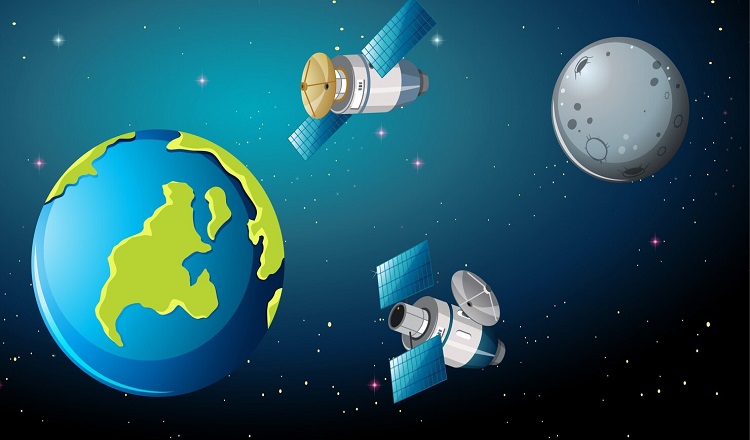Neil Armstrong once said, “One small step for man, one giant leap for mankind.” Since the first person set foot on the moon, space exploration has captured the attention of people all around the world. The combined effort that has gone into these accomplishments is even more amazing than the advances in space technology themselves. International space cooperation has been essential in revealing the mysteries of the cosmos, from the International Space Station to Mars expeditions.
International space cooperation is crucial for global understanding and cooperation, yet it is also a matter of scientific curiosity. While the United States has been instrumental in the evolution of space technology, many of the developments we take for granted today would not have been feasible without the participation and assistance of other nations. It is impossible to exaggerate the value of international cooperation in space, and this article will go into great length on the subject.
This article will examine the advantages of international space cooperation, as well as its drawbacks and methods of implementation. We’ll also examine the U.S.’s participation in foreign space partnerships and talk about prospective new partnerships. So, fasten your seatbelts and prepare for an extraordinary voyage as we investigate “The Importance of International Space Collaboration” in the USA.
The significance of international space cooperation
Collaboration in space between nations is essential for various reasons. Together, nations can combine resources, impart knowledge, and advance science more quickly than they could do on their own. This partnership may result in the creation of novel tools and methods that will be advantageous to all parties and increase our knowledge of the cosmos.
A lot of international space collaborations have been successful in the past, like the International Space Station, which has been occupied for more than 20 years. The United States, Russia, Japan, Canada, and 11 European nations all participated in this project. Other prominent partnerships include the construction of the Hubble Space Telescope by NASA and the European Space Agency, as well as the construction and operation of the Mars Curiosity rover by NASA and international partners.
These partnerships have advanced science significantly and demonstrated that nations can work together to accomplish great things. We can discover the mysteries of the cosmos and open the door for future generations to explore space if we keep cooperating.
Collaboration between the United States and other countries in space
International space cooperation between the United States and other countries dates back to the 1960s, when NASA collaborated with the Soviet Union on a joint mission. Since then, the US has worked with several nations on a range of initiatives, including the International Space Station, which was developed in partnership with the US, Russia, Japan, Canada, and 11 European nations.
The United States is currently involved in a number of international space partnerships, such as the Artemis programme, which, in coordination with a number of international partners, intends to land the first woman and the next man on the moon by 2024. Additionally, NASA and the European Space Agency are collaborating on the James Webb Space Telescope, scheduled to debut in 2021 and offering previously unimaginable views of the cosmos. These partnerships demonstrate the United States’ ongoing dedication to collaborating with other nations to improve scientific research and space exploration.
International Space Collaboration Challenges
International space cooperation can be very advantageous, but it also has its own set of difficulties. The need to coordinate and synchronise various national agendas and policies, as well as technology and cultural disparities, is one of the key obstacles. This may result in a breakdown in communication, misinterpretations, and disputes.
Previous partnerships have had difficulties, such as the mishaps of the Russian Soyuz rocket in 2018 that caused the postponement of many ISS trips. As evidenced by the 2016 cancellation of the collaborative ExoMars mission between the European Space Agency and Russia, there have also been challenges with finance and information sharing.
These difficulties emphasise how crucial it is for multinational space cooperation to have clear decision-making procedures, excellent communication, and transparency. Despite these problems, it is obvious that collaboration has more advantages than disadvantages. Going forward, it will be crucial to continue addressing these issues if we are to advance scientific research and exploration.
How to Achieve International Space Collaboration
International organisations, private corporations, and numerous national space agencies work together to collaborate on international space projects. These organisations collaborate to pool resources, knowledge, and technology. Since it has a long history of collaborating with other space agencies and exercising leadership in international space efforts, NASA is essential in fostering international space collaborations. In order to maintain safety and international cooperation, international organisations like the United Nations also play a crucial role in setting rules and regulations for space activities.
Countries can collaborate on certain projects and set up joint flights through the International Astronautical Federation and other global organisations. These partnerships have united nations in the joint pursuit of exploration and discovery and have resulted in major advances in space technology and scientific knowledge.
The Prospects for Global Space Cooperation
The future of international space cooperation is promising, and there are several chances for nations to collaborate on innovative and exciting initiatives. One such initiative is the Artemis programme, which, with the aid of foreign partners, aspires to create a sustainable presence on the moon by 2024. Missions to Mars and the creation of new technology to explore the extreme reaches of our solar system are two other potential areas of cooperation.
Maintaining global cooperation in space is essential to attaining these objectives because it enables nations to pool resources and expertise to advance science more quickly than they could individually. Collaboration also promotes a sense of solidarity and cooperation among nations, which may enhance diplomatic ties and advance international understanding. International space collaboration will undoubtedly be crucial to the future of space exploration given the enormous possibilities for innovation and discovery.
Conclusion
This article has examined the significance of international cooperation in space, focusing on the U.S. role in earlier, ongoing, and upcoming collaborations. We talked about how international cooperation in space could lead to more advanced scientific research and exploration as well as the sharing of resources, knowledge, and technology. We also looked at the obstacles to collaboration, such as poor communication and financial problems, and we emphasised the significance of clear decision-making, open communication, and effective communication in overcoming these obstacles.
Additionally, we talked about the past, present, and potential futures of American participation in international space cooperation. We also emphasised how crucial it is for global institutions like NASA and the UN to promote cooperation and create rules and regulations for space activity.
In conclusion, it cannot be emphasised how important it is for international space collaboration to further scientific research and exploration. Greater advancement and comprehension of our cosmos will depend on ongoing efforts to promote international cooperation.
Read More You May Like:











